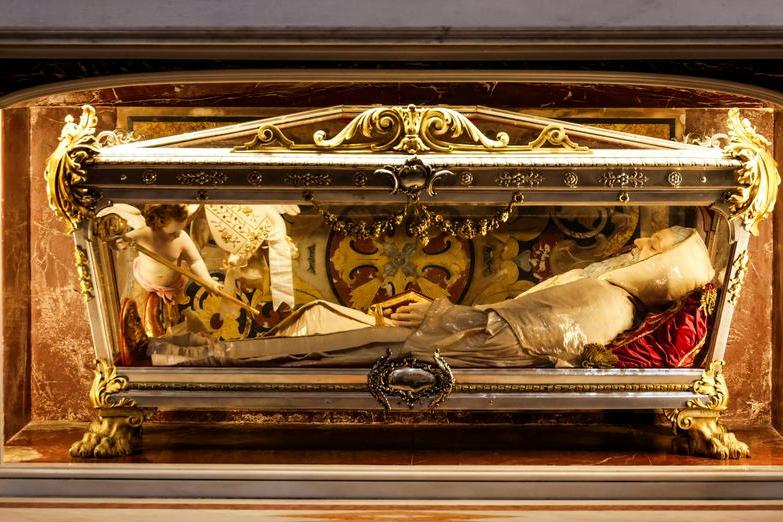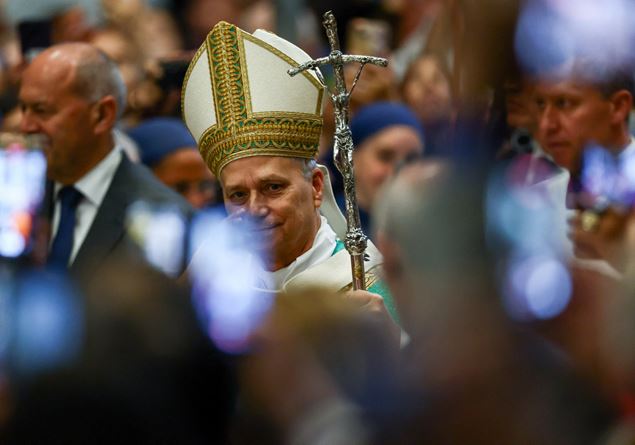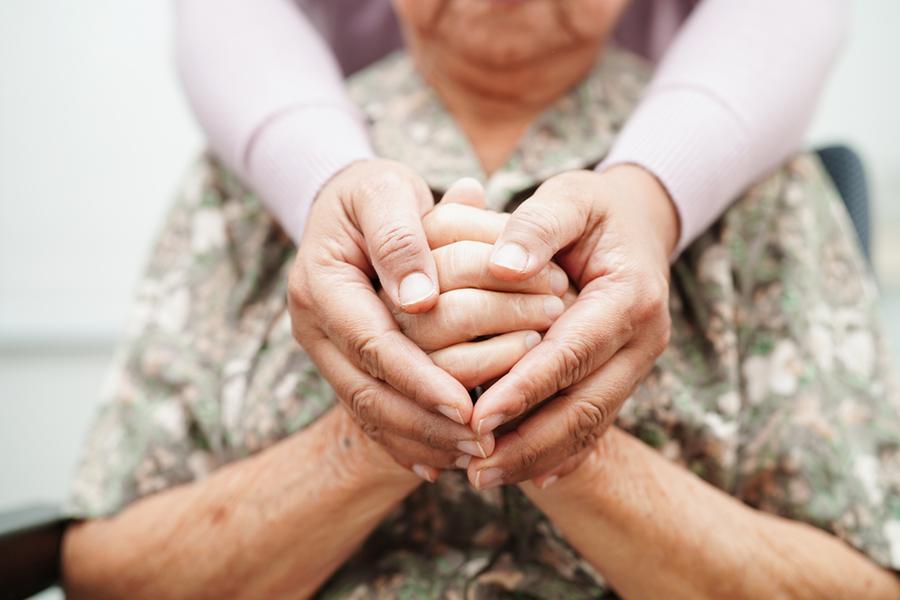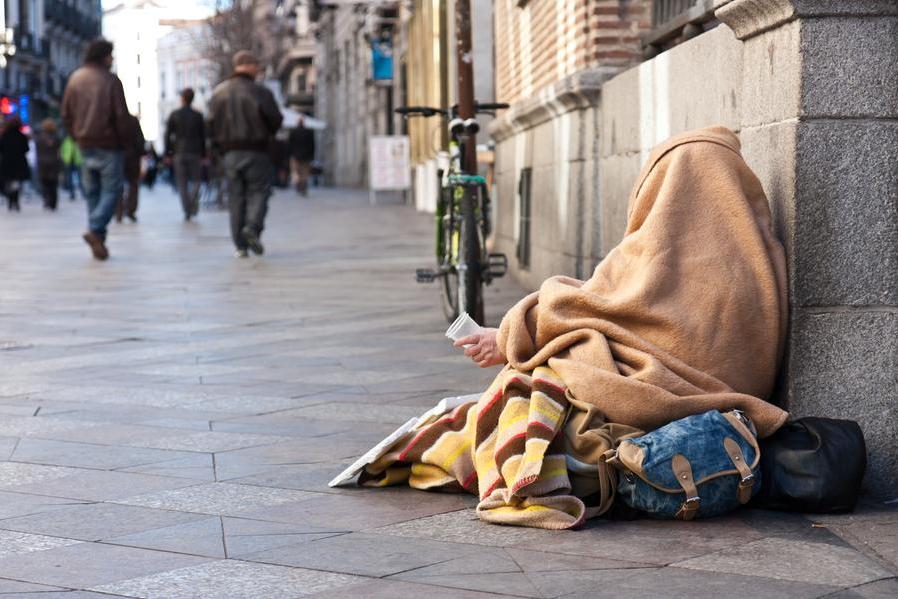Before the mass he had unexpectedly appeared in St. Peter’s Square to greet those who had taken their places between the barriers. Pope Leo welcomed those participating in the Jubilee of the Poor, but who were unable to enter the basilica. He reminded them of the phrase from the Gospel “that we all know: ‘Blessed are the poor in spirit, for theirs is the Kingdom of Heaven.’ We all want to be among the Lord’s poor”explains. And he added that “our life is a gift from God and we receive it with great gratitude”. Then he thanked “for your presence” and explained that “the Basilica is becoming a little small today”. But even by being in the square «you are part of the Church and you can also follow the Holy Mass on the screens. Participate with much love and with much faith”, he urged, standing in the churchyard, “and know that we are all united in Christ. So we celebrate the Eucharist”, he concluded by giving the appointment for “the Angelus here in the square”.
His homily, then, comes as a caress for the 12 thousand who participate in the celebration. It explains Malachi’s prophecy in which, amidst destruction, famine and pestilence, we glimpse “the arrival of the ‘day of the Lord’, the entry into the new time”. A time of God in which «like a dawn that raises a sun of justice, the hopes of the poor and humble will receive a final and definitive response from the Lord and the work of the wicked and their injustice will be uprooted and burned like straw, especially to the detriment of the defenseless and the poor.” This sun, explains Leone, “is Jesus himself”. He is “the lordship of God who makes himself present and makes room in the dramatic events of history”. For this reason, apocalyptic events must not frighten «the disciple, but make him even more persevering in his testimony and aware that the promise of Jesus is always alive and faithful: “Not even a hair of the head will perish”».
Jesus is the hope “to which we are anchored, despite the not always happy events of life”. The persecutions are not over, but neither are the consolations of God. «And», adds Leone, «where all human hopes seem to run out, the only certainty becomes even more solid, more stable than heaven and earth, that the Lord will not let even one of the hairs of our head perish». The Pontiff insists on underlining that «in the persecutions, sufferings, hardships and oppressions of life and society, God does not leave us alone. He manifests himself as the One who takes a stand for us. All Scripture is crossed by this red thread that narrates a God who is always on the side of the least, on the side of the orphan, the stranger and the widow”. Through Jesus “the closeness of God reaches the summit of love: for this reason the presence and word of Christ becomes jubilation and jubilee for the poorest, having come to announce the good news to the poor and preach the year of grace of the Lord”.
A year “of grace” in which “we still participate in a special way, precisely today, as we celebrate, with this World Day, the Jubilee of the Poor. The whole Church rejoices and rejoices, and first of all to you, dear brothers and sisters, I wish to forcefully transmit the irrevocable words of the Lord Jesus himself: “Dilexi te – I have loved you”. Yes, in the face of our smallness and poverty, God looks at us like no other and loves us with eternal love. And his Church, even today, perhaps above all in our time still wounded by old and new poverty, wants to be “mother of the poor, a place of welcome and justice”.
The Pope does not hide the many “poverties that oppress our world! They are first and foremost material poverty, but there are also many moral and spiritual situations, which often especially concern the youngest. And the drama that cuts across them all is loneliness. It challenges us to look at poverty in an integral way, because it is certainly necessary at times to respond to urgent needs, but more generally it is a culture of attention that we must develop, precisely to break the wall of loneliness.”
We have to stay “attentive to each other, to each one, where we are, where we live, transmitting this attitude already in the family, to live it concretely in the places of work and study, in the different communities, in the digital world, everywhere, pushing ourselves to the margins and becoming witnesses of the tenderness of God”.
He speaks of «war scenarios, unfortunately present in various regions of the world» which «seem to confirm us in a state of helplessness. But the globalization of impotence arises from a lie, from the belief that this story has always gone like this and cannot change. The Gospel, however, tells us that precisely in the upheavals of history the Lord comes to save us. And we, the Christian community, must be today, among the poor, a living sign of this salvation.”
Leone explains that «poverty challenges Christians, but it also challenges all those who have roles of responsibility in society. I therefore urge the Heads of States and the Heads of Nations to listen to the cry of the poorest. There can be no peace without justice and the poor remind us of this in many ways, with their migration as well as with their cry which is often suffocated by the myth of well-being and progress which does not take everyone into account, and indeed forgets many creatures, leaving them to their fate”.
To thank them, he addresses “the charity workers, the many volunteers, those who work to alleviate the conditions of the poorest” and encourages them “to be increasingly critical consciences in society. You know well that the question of the poor leads back to the essence of our faith, that for us they are the very flesh of Christ and not just a sociological category.” Recall what he wrote in the Dilexit te: «The Church, like a mother, walks with those who walk. Where the world sees threats, she sees children: where walls are built, she builds bridges.”
So, while waiting for the “glorious return of the Lord, we must not live a life closed in on ourselves and in a religious intimacy that translates into disengagement towards others and history. On the contrary, seeking the Kingdom of God implies the desire to transform human coexistence into a space of brotherhood and dignity for all, without exception. The danger of living like distracted travellers, careless of the final destination and disinterested in those who share the journey with us is always around the corner.”.
He offers, as an example, «the figure of Saint Benedict Joseph Labre, who with his life as a “wanderer of God” has the characteristics to be the patron saint of all the poor homeless. May the Virgin Mary, who in the Magnificat continues to remind us of God’s choices and becomes the voice of those who have no voice, help us to enter the new logic of the Kingdom, so that in our lives as Christians the love of God who welcomes, forgives, binds wounds, consoles and heals is always present”.









